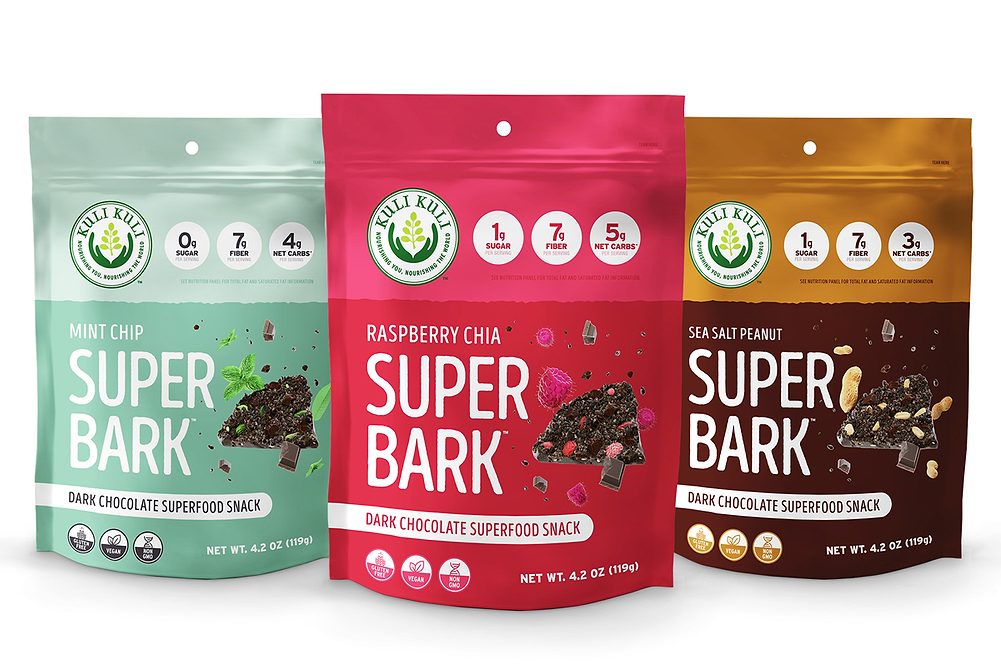OAKLAND, CALIF. — Over the past six years, Kuli Kuli founder Lisa Curtis pioneered the introduction of moringa in the United States, offering the nutrient-dense green in a range of powders, smoothie mixes, nutrition bars and wellness shots at more than 11,000 retail stores nationwide. With the brand’s latest line extension, she hopes to broaden consumer interest in other sustainably grown superfoods, such as breadfruit and baobab.
Launching online at kulikulifoods.com, Kuli Kuli SuperBark is a collection of snacking chocolate infused with moringa, chia seeds, quinoa and cacao. A mint chip variety includes coconut and breadfruit, which is associated with digestion benefits. A chocolate peanut butter flavor adds maca, which has energizing properties, and a raspberry chia variant contains vitamin-rich baobab and hibiscus.
Sweetened with a combination of erythritol, chicory root extract and stevia, the products contain 1 gram or less of sugar per serving, with 7 grams of fiber and 2 or 3 grams of protein. Kuli Kuli SuperBark is gluten-free, vegan, non-GMO and keto-friendly.
Through consumer research, Ms. Curtis learned the brand’s core users often craved an indulgent snack in the afternoon or evening, countering healthy behaviors earlier in the day.
“We started thinking about what we could do that was more indulgent but still healthy and had all the functional benefits, like the rest of our superfood products,” Ms. Curtis said. “As we started to think about what ingredients to put in it, we started looking at it from both a functional and medicinal plant side but also from the perspective of other climate-smart tree crops that we can grow in a regenerative way alongside moringa, that will enable us to go deeper into the communities we already source from. Many of the African farmers we work with grow moringa and also grow hibiscus, cacao and baobab.
“For us, it’s really bringing to life this dual vision of a delicious guilt-free dessert that is also supporting these rural farming communities and helping to build these regenerative food forests.”
Following a website overhaul last year, the company is planning a small digital-first launch to test and iterate the offering before expanding into retailers.
“One of things we’ve learned as a company is once you launch things into retail it’s really hard to change them,” Ms. Curtis said. “Especially because this is a new space for us and kind of a new concept, superfood chocolate, we want to make sure we get it right before we go big.”
Rich in protein, potassium, calcium and vitamin A, moringa is a complete plant protein with the nine essential amino acids. Ms. Curtis first discovered the plant as a Peace Corps volunteer in West Africa. Going forward, product development from Kuli Kuli will continue to expand beyond moringa, highlighting some of the additional ingredients the brand is introducing in the new products.
“The pandemic in some ways helped to push us in this direction,” Ms. Curtis said. “We had a hard year and weren’t able to purchase as much moringa as we had anticipated. It wasn’t the growth year we expected. That’s hard on our moringa farmers, and it made us think a lot about how we can help them diversify not just from an environmental perspective but also from a business perspective. If they can grow moringa and baobab and hibiscus and breadfruit, that gives them a much more sustainable business overall and enables us to support them in multiple different ways.”





